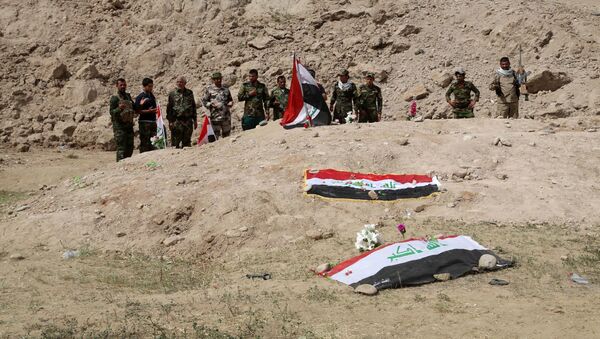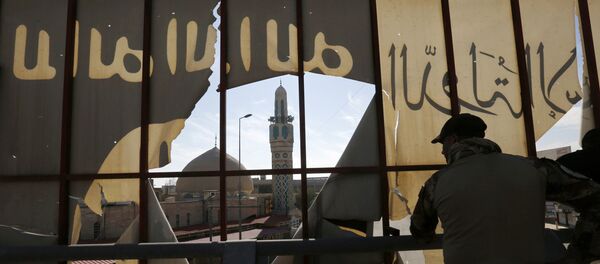On March 11, the People's Mobilization Forces of Iraq found a large common grave with the remains of about 500 civilians from the Badush prison. They were all executed by the militants.
It is reported that on charges of involvement in this massacre, 87 militants were arrested by the People's Mobilization Forces.
Terrorists seized the prison of Badush in June 2014 and shot 670 prisoners. After that the victims were burned.
Earlier in the month, Sputnik Arabic had obtained exclusive photos of a mass grave south of Mosul near the village of Rujuu.
Following the areas that have been liberated by the Iraqi security forces, local activists from another nearby village, al-Hud, were able to descend to the bottom of the pit using a rope tied to a car. Activists retrieved the remains of 15 people.
The gruesome Daesh legacy did not end there as the Iraqi security forces made a separate discovery at the Khasfa sinkhole outside western Mosul. The large natural depression is believed to be Iraq's largest mass grave, containing about 4,000 bodies of Iraqi security personnel, who were captured and killed by Daesh over the span of six months after the terrorist group captured the city in 2014.
As the Iraqi coalition continues to clear the suburbs of Mosul in an ongoing offensive, new evidence of gruesome crimes conducted by the terrorist group in the area have been discovered, including numerous mass graves containing hundreds of decapitated corpses, many of which presumably belong to former members of the local law enforcement.
On October 17, 2016, the Iraqi Army and Kurdish Peshmerga forces launched a major offensive on Mosul to liberate the city and its surroundings from Daesh.
Backed by air cover from the US-led coalition, Iraqi forces have recently taken control of major towns in the countryside surrounding Mosul, as well as recaptured several neighborhoods within the city.




